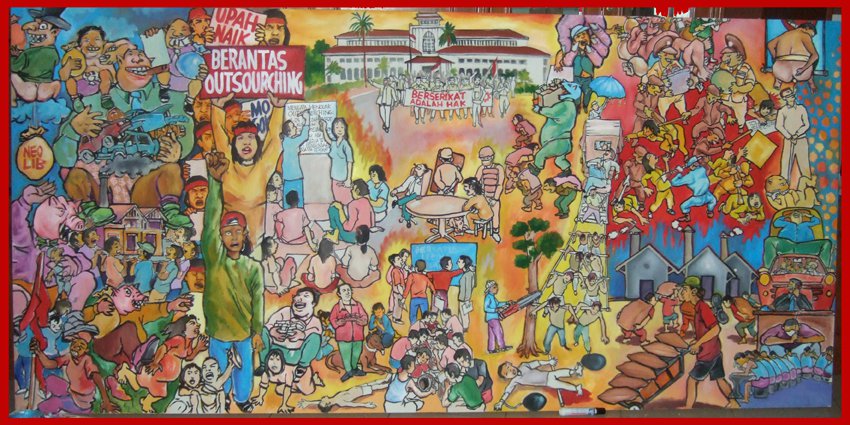Twelve years after one of the bloodiest military regimes worldwide ended, the radical left still faces a hard struggle in Indonesia. An interview with Indonesian activist Paulus Suryanta Ginting.
I’m a spokesperson for an organisation called Komite Politik Rakyat Miskin – Partai Rakyat Demokratik (Political Committee of the Poor – Democratic People’s Party, KPRM-PRD) Besides work for my organization I have also been active in workers movements in Semarang, Central Java and Sidoarjo, East Java, and in student movements in Jakarta, on Java. In 2004 I was still a member of PRD and I was a member of the board. Later, in 2006, I became the general secretary of the National Student League for Democracy. I was active in the student movement until this year.
Can you tell us something about the daily issues facing people in Indonesia?
A large problem is unemployment – above thirty per cent. Especially workers from the textile industry have been losing their jobs. After 1998 many textile factories in Bandung, Java, went bankrupt because they couldn’t pay for raw materials, imported for example from China, because the Indonesian Rupiah sharply declined in value. After 1998, the import axes on textile from China were abolished or sharply lowered – many Indonesian producers couldn’t compete and went out of business. The Asia China Free Trade Agreement means that many products from China can be imported to Indonesia under no or very low import taxes – and just like with textile, the Indonesian industry has trouble competing with this. Education and health care are also problems form many people who can hardly afford them.
1998 is the year Suharto’s regime ended but why was this also such an economic turning point?
Earlier, Suharto had already made huge debts to the International Monetary Fund (IMF). At the end of the nineties, Asia was hit by an economic crisis, caused for a large part by economic speculation. The IMF lend money to Indonesia on the condition it would implement so-called Structural Adjustment Programs. The agreement for these programs was signed by Suharto but these SAP’s were implemented by his successor, Bacharuddin Jusuf Habibie. Habibie also entered into new agreements with the IMF, just like Gus Dur, Megawati Soekarnoputri and the presidents after them, Susilo Bambang Yudhoyono. These programs meant a drastic liberalization of the Indonesian economy. The Worldbank also made liberalization and deregularization of the economy a precondition for aid. During the Suharto regime, the so-called New Order, Indonesia was quite popular among foreign investors. But Suharto and his cronies had controlled large parts of the economy. Now, everything had to be privatized and government subsidies on health care, education, public transport and food were slashed. This meant that many people had to pay more for these daily needs after the fall of Suharto and the cost of living is rising. When I was studying in Yogyakarta at the turn of the century, a good meal would cost less than 2000 rupiah – now, it would cost you over 4500.
 Okezone - July 12, 2010
Okezone - July 12, 2010

